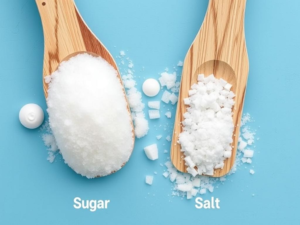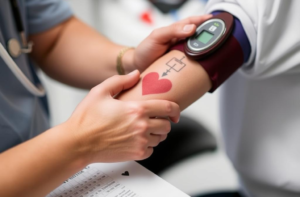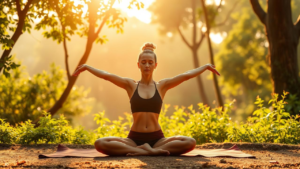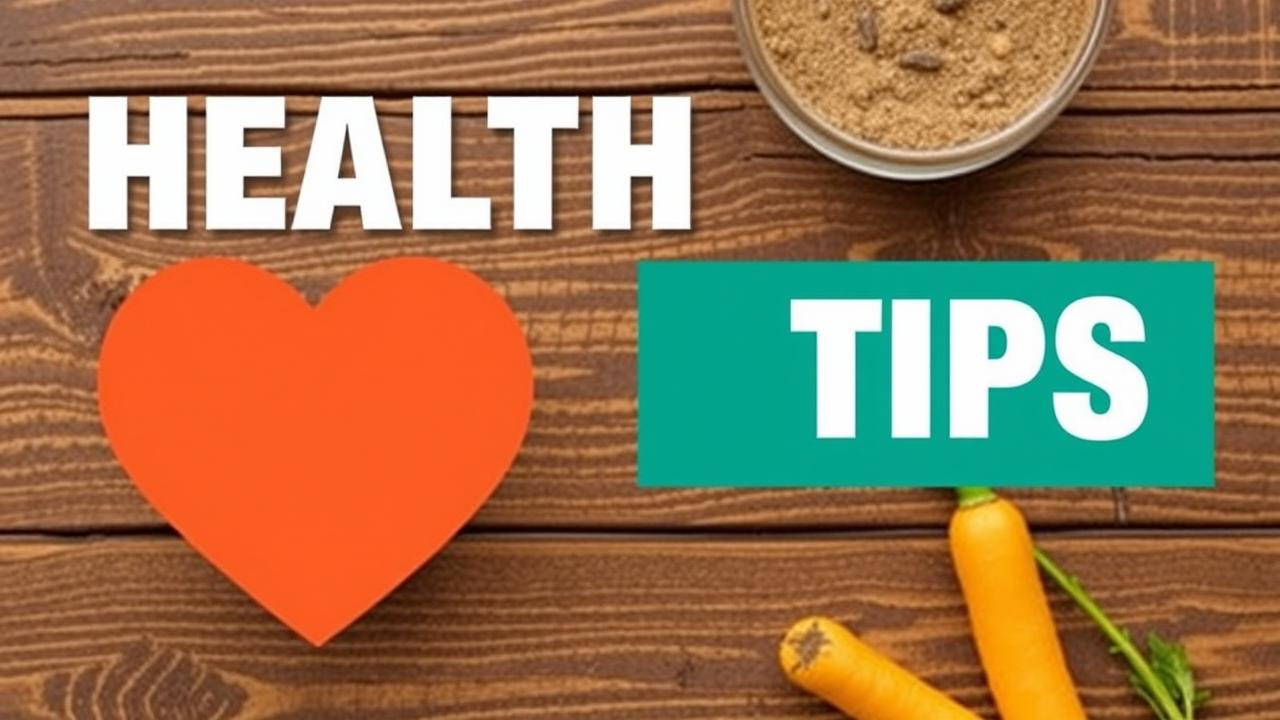11 Tried-and-True Health Tips for Stay Healthy Every Day
Hello fitness buddy! It is awesome to have you here. Let’s get straight to the point where you want to know “how to stay healthy every day?” Health is not about magical superfoods or working out every day. It’s about some simple habits accepted by Experts which are doable in a normal life. Here are 10 tips that I follow for stay healthy every day and have made a difference.
1. Eat a Balanced, Gut-Loving Plate
What I mean by it: Different colored fruits, brightly colored vegetables, some whole grains, legumes, nuts; and maybe an occasional fermented food or hormone diet menu plan;
Why it is important: Your digestive system is fundamental for supporting immunity, mood, and energy. Having a high fiber plate, beans, oats or chia seeds, feeds a happy gut, and will help keep you full longer stay healthy every day.
My story: Mornings used to be my weak point. I wanted sugar, and felt bloated. Since I’ve switched to a berry-and-oat breakfast, my mornings have completely changed within 2 weeks. Simple as that, and so much energy.
Quick tip: For stay healthy every day get that daily fiber total to be about 25-30 grams/day. If that sounds like a lot of fiber, consider starting breakfast with fruit, and a salad for lunch. Increase gradually, and drink plenty of water for comfort in slowly increasing your fiber intake.

2. Watch Added Sugar & Salt
What we mean: Reduce sweetened drinks, candy, prepared sauces, and extra salt in cooking.
Why it matters: Sugar leads to energy crashes and weight gain or loss; salt is associated with increased blood pressure. Reducing these will help stay healthy every day with your energy and your skin, heart, and waistline.
My experience: I changed my nighttime carbonated diet soda to an iced herbal tea – so I felt calmer, slept better, and intuitively lost two pounds.
Quick tip: Season your cooking with herbs, the zest of citrus, and vinegar – not table salt! And when craving sweets, opt for fruit or a piece of dark chocolate (over 70% cacao).

3. Eliminate Bad Fats; Embrace Happy Fats
What it means: Say no to saturated and trans fats (i.e., deep-fried snacks, full-fat dairy). Say yes to olive oil, avocado, nuts, seeds, and fatty fish.
Why it matters: These fats support brain health, long-term heart health, and even balance hormones.
My experience: It is a simple practice, but switching to avocado on my whole-grain toast from butter was filling and allowed me to have a more pleasant afternoon.
Quick tip: Eat a handful of almonds or walnuts as a mid-morning snack. Use olive oil for cooking, and aim to eat fatty fish such as salmon or sardines a few times per week.

4. Avoid smoking
What this means: If you smoke, stopping is going to be the most significant health decision you’ll ever make. If you are not a smoker — protect your environment.
Why it matters: Smoking increases the chance of heart disease, damages lungs, and creates skin that is older than your years. Secondhand smoke is not doing much better for you.
My experience: Helping my friend move through their quit phase showed me that fitness is more than just weights and diet, it is about making lifestyle choices that protect you from your best possible you.
Quick tip: Change for the better – one small change will make a difference – for stay healthy every day quickly replace one cigarette with gum or a walk, it all adds up! If you help someone else, celebrate every hour free of smoke!

5. Prioritize Traffic Safety—Live & Train to Reach Your Goals
What it means: Use seatbelts, helmets, don’t text and drive, and keep your eyes on the road.
Why it matters: Road safety accidents happen silent, but are a killer. Staying safe means keeping yourself alive so you can continue to live, train and accomplish your goals.
My experience: As a cyclist, I have seen people ride without helmets or while using their smart phones. For me to stay safe, I won’t do any of that. If I’ve had my drizzly cold, dirty dream of a workout today, I want tomorrow’s workout too; not a trip to the ER.
Quick tip: Consider all of your safety gear (seatbelt, helmet, reflective gear) like it’s your favorite pair of shoes—you can’t make any excuses not to use them!

6.Stay Active Anywhere – It’s easy to reach 150 minutes a week
What it means: You need to take part in at least 150 minutes of others and moderate intensity physical activity in a week (eg brisk walking any other activities such as moderate cycling, active housework, etc).
Why it matters: Movement puts you in a better position cardiovascularly, you have healthier energy levels, it decreases stress levels, while more easily keeping a healthy weight. Participation is recommended to adults aged 18-64 by the World Health Organization.
My personal experience with this was hassle to get to the gym every week. I couldn’t put myself lol, so I ended getting back to dedicate time to brisk walking and doing light bodyweight am allowed. I was able to achieve the weekly 150 minute goal and after noticing a 30 minute 2 -3 times a week period of physical activity, I felt better mentally and there are signs I felt better sleep.
Quick tip: Don’t have a full 30 minutes? Break it into parts! Three 10 minutes of activity at separate times throughout the day (eg dancing, cleaning the house, stretching, and etc.), still qualifies as participation in the desired goal.

7. Wash Hands Often (Especially After the Gym)
What I mean by this is to wash your hand with soap and water or hand sanitizer before eating, after classes and after using public transportation keeping you stay healthy every day.
Why it’s important: Germs spread rapidly when they are put on your hands. Clean hands = fewer days sick = fewer missed workouts= fewer antibiotics.
What I’ve experienced: I only caught a cold once when I was travelling. It was when I didn’t wash my hands! After that, I became a soap nut and continued to be healthy!
Quick tip: Carry a small bottle of hand sanitizer in your bag and wash hands for a minimum of 20 seconds every time.

8. Get your blood checked on a regular basis
What it means: You should be going to the doctor for issues such as blood pressure, abnormal cholesterol, blood sugar levels, and general well-being – at least once a year.
Why it matters: There are a few conditions that sneak up on us, like high blood pressure and early diabetes, and we have no idea until they become bad enough that we notice.
My story: I tracked my BP every month, and I realized pretty early on that my baseline was higher than I had thought. That knowledge kept me from ending up in bigger medical issues down the road.
Quick tip: Keep track of all your readings by entering them in a basic Health Notes app, and share them with your doctor when you visit!

9. Take only the prescribed antibiotics

10. Embrace Yoga, Sleep, Social Connection & Mindfulness
What it means: Yoga, sleep (in a good routine); friendship, and calm (meditation, journaling, breathing).
Why it is important: Real wellness is not just muscles and pulses, it is about rest, regulation, and emotional balance.
My experience: After one week of evening yoga, and an earlier bedtime (and no screens) I was stronger both physically and mentally. My training sessions for stay healthy every day improved, stress released, and my mood improved.
Quick tip: Start with 10 minutes of stretching in your evening yoga practice or even a guided breathing exercise to half your time before bed (build to 20-30 minutes, 3-4 times every week

11. Move in a Way You Love – Japanese Interval Walking
What this means: A fun walking routine–3 minutes brisk, 3 minutes slow, repeat for a total of 30 minutes.
Why it matters: It’s easy, low impact, and creates a bigger heart rate increase than walking.
My experience: I had been doing a slow morning walk and changed it to intervals around the neighborhood and this is more effective to stay healthy every day. My energy levels went up, and my stress levels went down. No gym necessary.
Quick tip: For beginners, you can try 1 minute fast, 2 minutes easy while you build to a total of 30 minutes.

Putting It All Together
Consider these 11 tips as pieces of a puzzle to stay healthy every day – all fit together to provide the big picture of a healthy and satisfied life! You will not need to do them all at once. Consider choosing 2 or 3 and be committed to them for a couple of weeks – swap out your breakfast and have a fibre-full bowl, do Japanese interval walking on your next work break, do a sleep routine that includes no screens after 9 pm habits makes you stay healthy every day.
If you do those and notice the ripple effect, more energy, clearer skin, better mood, better workouts, etc. It’s not about being perfect, it’s about stay healthy every day by gaining momentum and simply making one good choice at a time.
Read more blogs with Getwellfit :- Fitness


